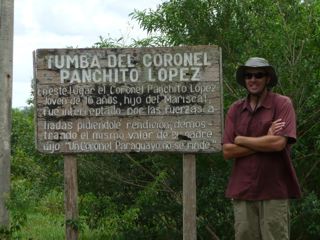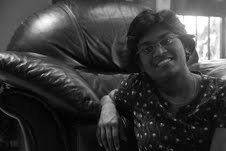Michael Spann : Black Outlaws
Australians love to venerate and immortalise their outlaws as heroes, seeing rebelliousness and the concept of a ‘fair go’ as part of their cultural identity. Men such as Ned Kelly, Mad Dog Morgan and Jack Doolan have been celebrated in both film and song for sticking it to the authorities and battling for the ‘little man’ but two other non-white figures going back to the first days of colonisation have until recently flown under the radar: John ‘Black’ Caesar, a black African who was Australia’s first bushranger and Pemulwuy, an almost mythical Aboriginal warrior who led the indigenous resistance against the fledgling British settlement.
It comes as a surprise to most Australians that there were 11 black men on the First Fleet in 1788. Caesar was one of these. His journey probably began in Madagascar. Taken as a slave to work in the fields in Virginia in the United States, he became one of the hordes of slaves to take refuge behind British lines in the American War of Independence. After the defeat of the British in 1783, a fleet carrying many runaway slaves and black loyalists fled to Nova Scotia. Caesar, thought to be 14 years old at the time, was one of them. The Minerva then took him to England in the same year, joining an estimated 9000 other slaves who had also left America.
Even though London was unquestionably the world’s greatest city and for some the streets were paved with gold, for most it was an unforgiving place full of danger and vice. For most of the former black loyalists the situation was dire and some, like Caesar turned to crime to survive. In 1786 in Kent, he was convicted of stealing money and soon was in the Ceres; a fetid, disease ridden prison hulk on the Thames. This was merely a precursor to being chained between decks for the trip on the Alexander to that outpost of the Empire, Botany Bay.
It is impossible to know for certain which black was in the initial work party at Botany Bay, but with Caesar’s imposing stature and immense physical strength (he was thought to be the strongest convict in the First Fleet) it wouldn’t be far fetched to say that he was one of the men sent ashore to try and carve something from the black sandy soil. Aboriginals from the Eora tribe who met the party must have not only been confused by the white convicts and marines in their strange garb but also by a pitch black man in the self same get up talking the same language as these otherworldly creatures. Finding Botany Bay not to their liking the entire fleet moved north to Port Jackson a few days later.
From our vantage point of history it is difficult to comprehend but in terms of European civilisation the First Fleet literally had nothing and the 732 convicts with their inadequate tools had to start from Year Zero. The rules they worked under were simple and brutal. Anyone caught stealing would hang. If they didn’t work, they didn’t eat and anyone trying to enter the woman’s tents would be shot. Of course this last rule lasted about as long as the ink took to dry and one officer in a letter home to his wife recalled that the woman’s camp soon resembled ‘whoredome’. The rations supplied to the convicts for their back breaking tasks were too little and in a couple of months were further reduced. Quite simply, for a man of Caesar’s size the rations were not enough and as noted by the man who would soon to become his nemesis, Marine Captain David Collins, Caesar was always ravenous. As such, Caesar’s first infraction in the new colony was when he was accused of stealing four pounds of bread from the tent of another convict. Although the surviving records don’t show Caesar’s punishment it is safe to assume he was tied to a tree and given 100-300 lashes. On this occasion it is also likely to assume that still swinging from the same tree that Caesar was tied to was a 17 year old youth who had been hung for stealing bread. The savage parameters of the new colony had been set but did little to stop the settlement sliding further into hunger as crops and animal rearing failed and dysentery and scurvy raised their ugly heads.
In April 1789, in what was to become a pattern, Caesar appeared in court for stealing. This time he wasn’t flogged but received a much worse punishment as his sentence was increased from seven years to life. Seeing a lifetime of punitive brutality and hunger stretching before him, Caesar made the first of his escapes. With a stolen musket and cooking pot, Caesar ventured into the great unknown beyond the settlement but was captured shortly after, weak with hunger and offering no resistance. This time, Caesar was sentenced to death.
The evocative alleged last words of Ned Kelly ‘Such is Life’ now feature on tattoos and on Eureka Stockade flags co-opted by drunken louts on Australia Day, reinforcing Kelly’s status as Australia’s folk hero of folk heroes. Caesar’s nonchalant reply on sentencing should also be duly celebrated but problems of translation may hinder this. He told the judge, “if they should scrag him he would quiz them all and show them some gig at the nubbing cheat, before he was turned off.” A loose translation of this convict argot was that he would play a trick on the executioner and get a laugh for both he and the crowd before he was hung. Judge Collins, who at various times called Caesar ‘ a wretch’, ‘a mere animal’ and ‘insensible alike to punishment and kindness’ did not want Caesar to become a symbol of convict resistance, something which may have eventuated if the proposed execution was turned into some sort of theatre. Instead Caesar, who was not averse to hard work was sent to work in chains on Garden Island, in the middle of Sydney Harbour, from where the settlement’s vegetables were supplied.
Even though he was allowed to supplement his meagre rations with what he grew Caesar again escaped in December 1789 after convincing sympathetic guards to remove his chains. Taking a canoe and a week’s worth of provisions he headed into the interior, stopping only to steal a musket from the settlement. He roamed for six weeks until he was recaptured suffering from severe spear wounds. Various accounts have been put forward as to how he had come to be speared; from his own unlikely tale that he had been trying to drive a lost herd of cattle away from Aborigines back to the settlement to the idea that he had tried to integrate himself with the Aborigines but had committed a cultural error and was cast out. The most probable cause was Caesar (who had no ammunition for his musket) would descend on Aborigines when they had anything on the fire, swaggering and brandishing his musket. The Aborigines who had no idea that Caesar had no ammunition and knowing the power of the weapon, scattered. That was until he lost his musket and was attacked. Again given the sentence of death, he was sent to hospital to recover until fit enough to hang.
Probably realising at this stage it was far easier to get rid of Caesar (in a geographical sense), he once again escaped the noose and in 1790 was sent to far away Norfolk Island. On Norfolk, with the incentive of more freedom and food Caesar threw himself into his work and took a wife, Anne Poore. Making a good go of it, Caesar worked his one acre plot for three days a week, providing not only enough for himself but also his family which now included a baby daughter. Even so, not all was rosy on Norfolk Island and circumstances were again conspiring to change the trajectory of Caesar’s journey. When soldiers from the New South Wales Corps (a body of men whose self penned motto of profits over glory attracted a less than desirable bunch) replaced the Marines on the island they demanded land of their own as well as women. Being a law unto themselves, their demands were taken very seriously and to avoid bloodshed, ‘trouble makers’ like Caesar were sent back to Sydney in 1793. His family was not permitted to come with him.
During the time that Caesar had been on Norfolk, Pemulwuy had also put himself on the British hit list by spearing John McIntyre, one of Governor’s game hunters. The spear (used by the Bidjigal clan of the Eora peoples) had been designed to cause a slow and painful death with barbs meant to come off when the spear head was removed from the body. A reprisal operation took place (interestingly led by another black convict, John Randall) which was supposed to capture Pemulwuy and bring back the heads of another six Aboriginal men. This grisly operation was an utter failure with no Aboriginals found but Pemulwuy was now too, a marked man.
A distraught Caesar arrived back in Sydney with the settlement careering towards starvation. The only thing not in short supply was alcohol, which like most saleable items was controlled by the New South Wales Corps. Almost as if he had come full circle, Caesar again absconded and following the same pattern was caught and flogged unmercifully. But like a scene in ‘The Proposition’, Caesar, with flesh hanging from his back and the flogger wiping gore off the cat of nine tails after each stroke, refused to buckle telling Collins that ‘all the flogging in the world would not make him better’. In the eyes of the other convicts Caesar’s acts of defiance as well as his swift turn of phrase gained him an almost legendary standing amongst his fellows.
Pemulwuy and the Eora had also become a bigger problem as the settlement spread from Sydney and Parramatta, further encroaching on Aboriginal land and chasing away more game. In a series of co-ordinated attacks, Pemulwuy’s gang (which included a couple of Irish runaways who helped with information about the settlement and military tactics of the British) raided settlers farms stealing ripening crops and provisions. The British put these raids down to the Aboriginals having taken a liking to corn, not giving the Aboriginals credit enough for an organised coherent strategy designed to get them out of their hunting lands. The attacks pushed the settlement to the brink and the British responded by retaliating harshly. Pemulwuy responded in kind and dead were left on both sides in a series of gruesome attacks and counter attacks. For a time it looked as though the raids and guerilla tactics would prevail as amongst the British there was talk of abandoning prime farming land and looking for new sites. One can imagine the British wondering who was the biggest scourge to the new settlement, the Aboriginal warrior Pemulwuy or the incorrigible Black Caesar.
This was especially so when Caesar escaped ‘honest labour’ again. This time, however he was more successful as like other bushrangers after him, he was able to get arms, ammunition and supplies from the growing number of ex-convict settlers who sympathised with him and his stand against oppression. Nor was Caesar the only runaway and soon a ragtag gang had formed around him. The legend of the first Australian bush ranger had been born. Although death would be the only thing that would make Caesar ‘acceptable’ to the British authorities he achieved a notion of acceptability when he clashed with Pemulwuy. The swirling miasma of history has obscured the reasons for this clash (some have suggested that Pemulwuy and Caesar had joined forces) but the bloody conflict left Pemulwuy severely wounded with a fractured skull and musket wounds. At first, the rumours that filtered back to the settlement stated that the feared Aboriginal warrior was dead, cheering the authorities no end. Judge Collins still considered Caesar as a ‘savage of a darker hue, and full as far removed from civilisation,’ but having removed one of the obstacles to the success of the colony sent word to Caesar that he was ready to cut him some slack. Caesar from bitter experience had become inured to the broken promises and savagery of the British laughed off the offers and continued on his newly found bush ranging ways. Caesar’s continued defiance and resulting embarrassment to the authorities led to other offers of conditional pardons but Caesar, echoing villains past and present sent back word he wouldn’t come in or be taken alive.
In January 1796, an official notice was published which made every scoundrel in the colony sit up and take notice. ‘Whoever shall secure this man Black Caesar and bring him in with his arms shall receive as a reward five gallons of spirits.’ As alcohol was more plentiful than food and more important than money this large reward attracted more than its fair share of bounty hunters. As time went by and Caesar was still at large, his legend and celebrity grew until every crime in the colony was being attributed to him and breathless reports built him up to almost invincible proportions. Alas, this was not the case and on the 15th of February 1796 at Liberty Plains west of Sydney Cove, Black Caesar was shot down in cold blood by an alcoholic ex-highwayman, John Winbow who may have been part of Caesar’s own gang. An unflinching Collins when hearing the news of the death of the first icon of convict resistance wrote, ‘thus ended a man who certainly during life could never have been estimated at one remove above the brute.’
If the British thought getting rid of Black Caesar would calm things down they were sadly mistaken as in February, 1797, a fully recovered Pemulwuy managed to attack the small outpost of Toongabbie, five miles west of Parramatta. With many of the Eora nation’s sub groups attracted to his cause, much of Toongabbie was burnt and ransacked as it became the first town in the new colony to be taken by the indigenous peoples. Even though this attack sent shivers down the spines of both settlers and authorities alike, it was nothing like March of the same year when the stronghold of Parramatta was attacked in what became known as the ‘Battle of Parramatta’. Much of the town’s population retreated to the military stockade as many of the farms and houses on the outskirts were hit in the audacious attack. Fierce battles broke out with losses on both sides. Much to the authorities embarrassment, this ‘riotous and primitive savage Pemulwuy’ managed to take the town briefly before he was felled, shot seven times. He was captured and taken to a hospital, near death.
Pemulwuy, amongst his own people was known to be a ‘clever man’, that is someone associated with being able to harness supernatural powers. His escape from jail only emphasised these claims as after all how could a severely wounded man in leg irons, get away. To the Eora, the explanation was simple, he had turned himself into a bird and flown away … The white settlers, some already half believing the rumours that bullets couldn’t kill him (they somehow passed right through him) and that he could be in several places at once became even more skittish after Pemulwuy recovered and resumed his attacks. This time, his main weapon was a terrifying ally that his people had used for millennia, fire.
Burning down crops and the areas surrounding farms, Pemulwuy sowed seeds of terror and again pushed the settlement towards famine. Wheat Protection Squads were set up but Pemulwuy changed his tactics again, letting the men protect the crops as he attacked the homes, terrifying the women and children. Soon, the Protection Squads were useless as the men refused to venture far from their terrified families. Added to this, the bushrangers Thomas Thrush and William Knight were thought to be in cahoots with him. Interestingly enough, it wasn’t until late 1801 (and after 11 years of resistance) that Pemulwuy’s name was recorded in an official document ̶ a sign perhaps of the whitewashing of history that occurred after his death. The all powerful New South Wales Corps seeing their profits being snatched from them with the continual attacks and fires around Parramatta and its prime farming land, responded in kind. Every known Eora campsite was to be attacked and anyone found there, killed. Massacres of children, women and the elderly followed. Already decimated due to an outbreak of influenza, the indigenous Eora teetered on the brink of extinction.
Coupled with this was the staggering reward put on Pemulwuy’s head: 20 gallons of spirits, free pardon and two suits of clothes. In June 1802, Pemulwuy ‘The Rainbow Warrior’ (so called because he wore the various colours of the distinct groups that made up the Eora nation) was shot dead, his head cut off and sent to England for ‘scientific’ purposes. Even his enemies had to acknowledge, ‘although a terrible pest to the colony, he was a brave and independent character’. His son Tedbury continued the fight until, he too, was killed in 1810.
Although being seen as a heroic figure by the Aborigines, Pemulwuy has also gained recognition in the wider community: a suburb in Sydney was named after him, as well as a park. Prince William, on a recent visit to Australia was presented with a petition to have Pemulwuy’s remains brought back to Australia. One can hope that these are the first steps in acceptance being gained by a true Australian hero. Hopefully the same can also be said of his one time adversary, the giant Black Caesar.









